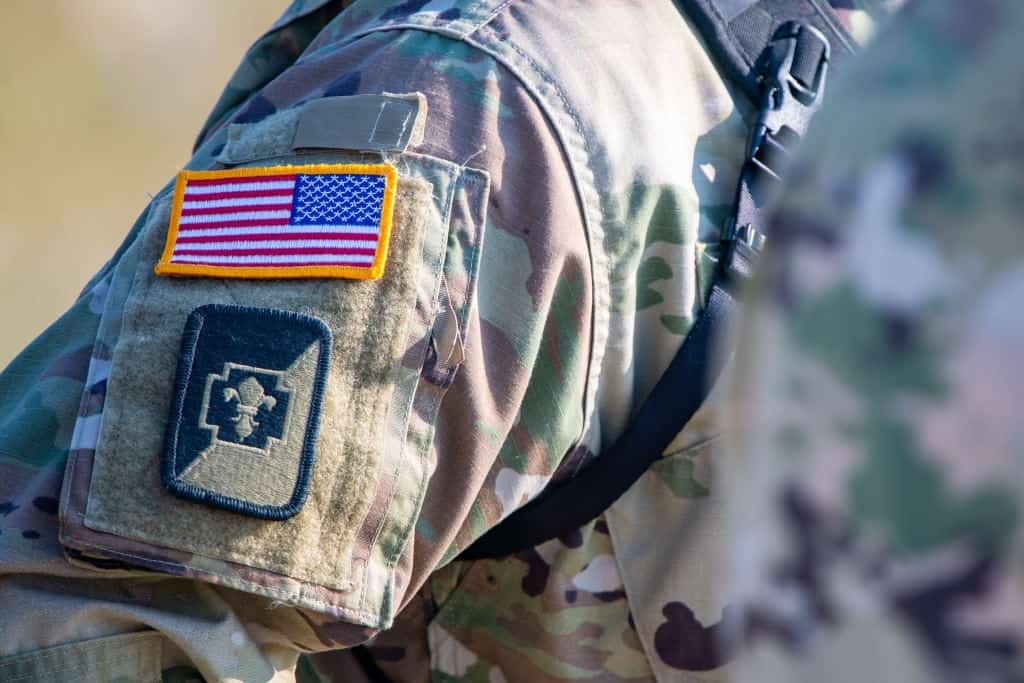Texas’ hospital system is being overwhelmed by the COVID-19 surge wrought by the Delta variant. More than 50 hospitals have run out of ICU capacity. Austin has only two ICU beds left thanks to the city seeing a record number of people in the ICU and on ventilators with COVID-19. In North Texas, children’s hospitals are at 97 percent capacity with the school year about to begin. Total ICU bed utilization across the state is at 90 percent. Some are saying that this wave is the worst one Texas has seen so far. With only 44 percent of Texans fully vaccinated and Governor Greg Abbott refusing to allow mask or vaccine mandates, things can get a lot worse before they get better.
The crisis will inevitably bring up the question of whether the U.S. military should be deployed in Texas and elsewhere to help deal with the surge. Indeed, the military has already been used to fight COVID-19 in the past, including in Texas. President Joe Biden previously supported deploying the military against COVID-19 while still a candidate in the early days of the pandemic. And while Texas is not the only state facing an onslaught of cases and hospitalizations, the fact that Texas is one of two states leading the pandemic of the unvaccinated means that it should receive high priority for federal help.
Few organizations if any organizations in the world can expand hospital capacity as quickly as the U.S. military. The military is prepared to deal with mass casualties on the other side of the planet. If they can set up field hospitals in Liberia during the Ebola crisis, they can do so in America. Last year, the Army Corps of Engineers built field hospitals across the country with a total of 15,800 beds in response to the pandemic, while the Navy sent two thousand-bed hospital ships to New York City and Los Angeles respectively.
The military can also provide additional personnel to fight COVID-19. With Texas hospitals facing staffing shortages and Abbott seeking medical staff from out-of-state, the military could deploy doctors, nurses, and other support staff. Most of the military’s medical personnel are reservists, so mobilizing them would weaken civilian medical activities elsewhere. However, given the uneven nature of the current COVID wave, it may be prudent to mobilize medical units from states that have high vaccination/low hospitalization rates and deploy them to hot spots like Texas.
However, it’s far from clear that the military is the best option at this time. Since the military is primarily focused on battlefield injuries, its field hospitals are designed to treat trauma patients rather than infectious diseases. In theory, the military could free up capacity in hospitals by handling non-COVID incidents such as car accidents as well as less sick COVID patients. In practice, this is easier said than done. “That requires a level of coordination, ambulatory transportation, patient and family cooperation, logistical, IT, insurance, medical, and pharmacological coordination, licensed health care provider staffing, etc., that is very hard to pull off,” former Secretary of the Army Louis Caldera told the Signal. “Net result: a lot of expensive and time consuming effort with little real impact.”
Indeed, the field hospitals that the Army Corps of Engineers set up in the early months of the pandemic cost $660 million and most of them didn’t treat any patients. Likewise, the hospital ships that the Navy deployed were barely used; thanks to bureaucratic hurdles and military protocol the USNS Comfort treated only a handful of patients while docked in Manhattan even as the city’s hospitals were overrun. Expanding capacity at existing hospitals, as some in Texas are already doing, is probably a better option.
Furthermore, deploying federal troops would require the governor to request it (the governor can also call up the state’s National Guard). “This is not something the federal government would do unilaterally, especially because any benefit requires a massive amount of coordination and the state is integral to that,” said Caldera. So far, Abbott has not called for the military to be used against the latest COVID surge.
So while deploying the military to set up hospitals and provide additional staff sounds like a useful measure against the Delta variant wave, previous experience suggests that it is likely more trouble than it’s worth. Perhaps that will change should the situation get much worse but hopefully Texas won’t get to that point. And should it become necessary, the deployment of the military would have to be carefully thought out to avoid a repeat of some of the issues seen earlier in the pandemic. “The military could help in these situations, but the state has to ask for the help and it has to be well thought and executed to actually make a difference,” said Caldera.
Photo: Lennart Preiss/Getty Images
William serves as the Washington Correspondent for the Texas Signal, where he primarily writes about Congress and other federal issues that affect Texas. A graduate of Colorado College, William has worked on Democratic campaigns in Texas, Colorado, and North Carolina. He is an internet meme expert.





